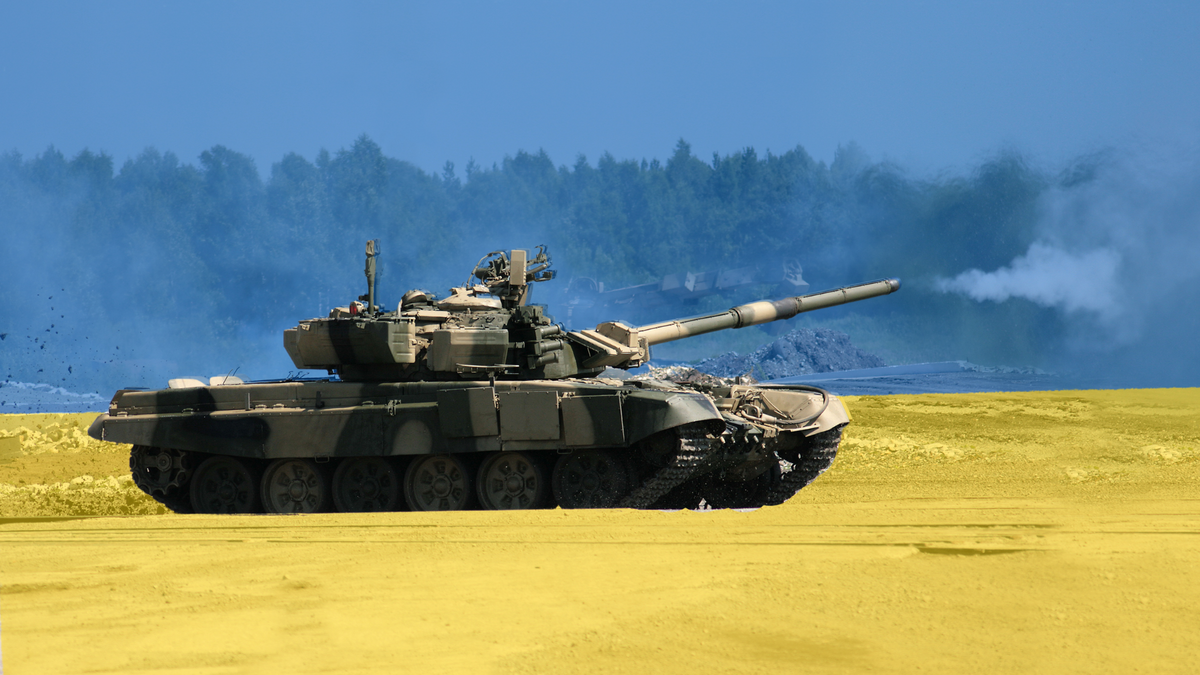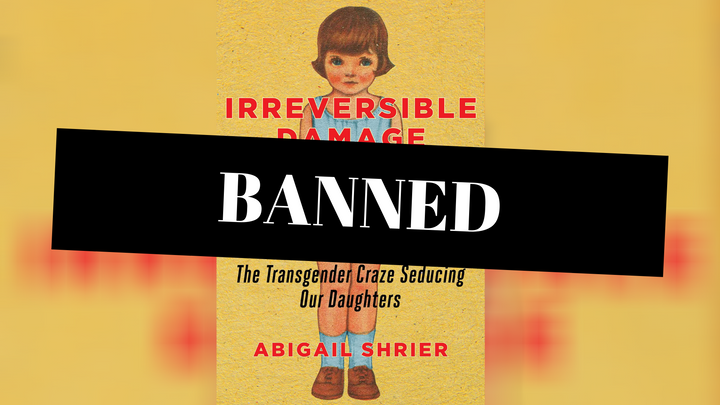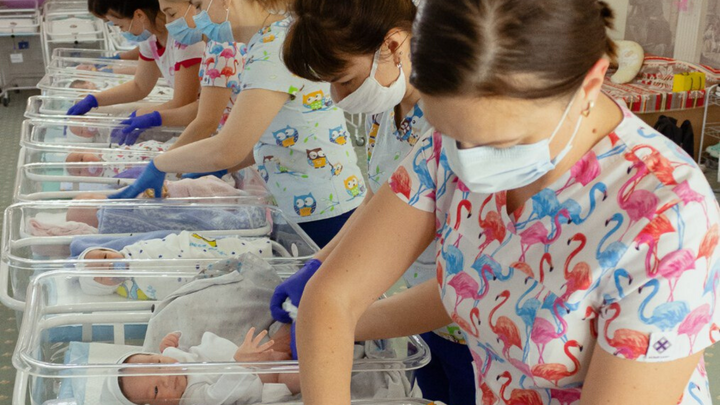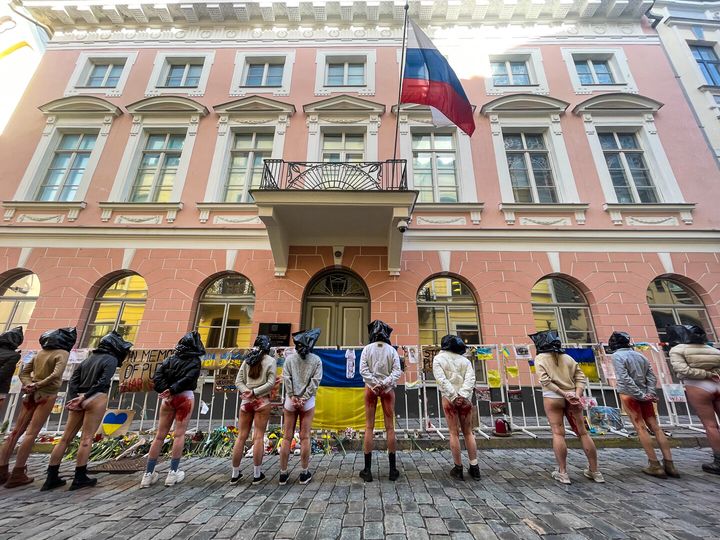Reflections on the War in Ukraine
"I have ancestral roots in Ukraine, whole missing family trees."

We've entered the second week of the Russian Siege of Ukraine.
Is this a horror movie—or is it real? Those of us who are lucky are watching this war of aggression unfold in real-time on television. We gasp, are horrified, addicted to the drama, but we remain passive observers. This is morally very dangerous. Is this a new form of entertainment? Our own 21st-century gladiatorial spectacle with a cast of many millions?
Incredibly, one million refugees—the ragged, desperate lines seem endless—have already fled to Poland, Romania, and Moldova. Some are holding their pets and not much more. The images on the screen and in the media are shocking, overwhelming. Bombed-out buildings, hospitals on fire, a woman in labor in an underground subway; families sheltering there as well. Homes leveled, rubble piled high. A maternity hospital bombed in Zhytomyr. Although we are told that Russian soldiers are dying and being wounded, the Russian military still represent an overwhelming and relentless force that will not stop until Czar Putin gets his way. His warships, missiles, airplanes ("bombers"), tanks, and troops on the ground seem endless, relentless, almost like a video game about the end of the world.
The use of such overwhelming force against a civilian population reminds me of something that happened more than a decade ago in upper New York State.
In 2008, in Binghamton, New York, Miladin Kovacevic, a 6'9" and 260 pound Serbian basketball player allegedly beat Bryan Steinhauer, a 5'6" and 135 pound American into a vegetative state coma in a bar. The Serbian student had his reasons—(he thought that Steinhauer had groped his friend's girlfriend) but he had been misinformed. Kovacevic was allowed to flee the country and was never extradited.
This horrible story has haunted me. (I checked. Steinhauer did live.) Now, in a way, what Putin is doing to Ukraine reminds me of this incident. Of course, there's much more to it, much more at stake now.
Czar Putin and his Chinese, Indian, Iranian, Iraqi, and Pakistani allies are capable of all manner of human rights atrocities—and they either have or can get nuclear weapons.
There is no international body with the power and the political will to restrain sovereign nations. No one ever stopped Syria from using chemical weapons against its own people or Rwanda from committing a genocide. The victims were seen as the property of the Syrian or the Rwandan leader. The UN is not fit for purpose. It never was. Read Shirley Hazzard on the death of this dream.
"Ukraine is like a battered wife who has dared to assert her independence."
Putin sees Ukraine as his property, too—a possession that has endangered him by its "wanton" interest in alliances with the West and with NATO. Psychologically, Ukraine is like a battered wife who has dared to assert her independence. As we know, such women hesitate to leave because they know that the consequences of doing so may be far worse than the beatings they'll endure if they remain in place. Her batterer may kill her, their kids, his in-laws, and maybe the dog.
Although I do not like to make such analogies, I think in this instance it might be somewhat useful.
When psychopathic bullies lose face they unleash Hell on others, both in order to have their way—and to save their honor. Putin believes that his power and his glory have been threatened by the mere existence of countries on Russia's flank, countries that had once been part of the Soviet Empire but are now free. And Ukraine wants to join them.
So much for Putin. How about the West? We hesitate, for some good reasons and in so doing we may be lost. We are capable of monumental indecision, infernal delays. Hard-heartedness. Delusions about the power of sanctions. Self-protectiveness. Clearly, Ukraine is Hitler's Czechoslovakia and we are all a herd of Chamberlains. Of course, the risks are far greater now; they are nuclear. We are looking at a twentieth-century-style war but in the 21st century, one waged with weapons of mass destruction—rather like a post-apocalypse horror movie. There are so many, our filmmakers have been feeling this possibility in their very bones.
We are hoping that this will not really happen. Let the bully have his prey and he'll stop. Right? Maybe not.
Perhaps the Russians will rise up and stop Putin. Their sons will not be returning home. They will not be able to bury them. What about the Russian people?
"Even a superpower cannot win an entire country in which most of its people are willing to fight forever."
I just spoke to a Russian expatriate who has been here for a long time. She told me that, after speaking earlier today to friends in several Russian cities, it is clear that: "65% of the Russian people have been totally brainwashed by propaganda. They believe that Ukrainian civilians and residences have not been bombed, that if any bombing has occurred that the Ukrainians have done it to themselves! And that Ukraine has been aggressive towards Russia."
Another Russian expatriate friend doubts that Putin can win. "He's already lost morally. He will also lose militarily even if it takes a long time." My friend also sees Putin's invasion of Ukraine as similar to the Soviet invasion of Afghanistan or as another "potential Vietnam." He tells me: "Even a superpower cannot win an entire country in which most of its people are willing to fight forever."
"What about the protestors in Moscow and St Petersburg? What will happen to them?" I asked.
"Oh, the first time they'll be arrested and released in three days. The second time, they may get a six-month jail sentence. The third time? They could be jailed for years."
Are our leaders willing to allow Putin to lay waste to Ukraine and subsume it into the Russian Empire? Have they drawn another kind of line in the sand—Ukraine can be sacrificed for the greater good but they will defend Poland even if that means nuclear war? How do we know that Putin will stop at Ukraine? Why do we think Putin will not use nuclear weapons?
Russia's allies—all those who chose not to condemn Russia's actions in the United Nations—are carefully watching. Will the West stand up for freedom and democracy or has the price become too high for that? Are we therefore willing to accept totalitarian dictatorships, as long as we can retain some spheres of relative freedom?
"I have ancestral roots in Ukraine, whole missing family trees."
I know that President Zelensky is a Jew but I doubt he was elected for that reason. Perhaps he was elected as a popular entertainer. Countries have been doing that for a while (Ronald Reagan, Arnold Schwarzenegger).
I stand with Ukraine in its hour of need. But, as a Jew, and as a woman, I am queasy, uneasy, ambivalent about both Russia and Ukraine. I have ancestral roots in Ukraine, whole missing family trees.
My father, Arye Leib, z"l was born in Lutsk, Ukraine—where my paternal grandmother, Perele, z"l was slaughtered by Cossacks—Czarist Russia's own.
I'm named after her. My paternal grandfather, Ya'akov, z"l fled that pogrom and came to the New World. He sent for my father seven years later. Who watched after my infant dad remains a mystery.
I am talking about Russian Ukraine before the Holocaust, before the massacre of 32,000 Jews at Babyn Yar; I am referring to the cycles of pogroms in which Jewish men were publicly tortured and murdered and Jewish women were repeatedly and publicly raped, continuously, week after week, first by white Russian troops, then by Bolshevik-Communist Russian troops, and finally by their Ukrainian peasant neighbors.
Dr. Irina Astashkevich has written a masterly work on this subject: Gendered Violence: Jewish Women in the Pogroms of 1917 to 1921. She has documented and described the indescribable and the unthinkable carefully, clearly, tenderly, devastatingly. These pogroms took place in shtetels all around Kiev/Kyiv: Dmitrovka, Skvira (the home of the Chernobyl Hasisic court), Rakitino, Smela, Cherkassy, Rotmistrovka, Aleksandrovka, Medvedovka, etc. Many raped women lost their menstrual periods, their minds, and their lives.
Daily, as I look at the maps of Ukraine, I keep seeing and thinking about my forever lost-to-me paternal ancestors. There they once were: In Lutsk, in northwest Ukraine, in the province of Volyn or Volyinia, some distance above Lviv and near the Polish border. Lutsk has belonged to everyone, the geopolitical aggression and occupations were the way of the world. Lutsk was Lithuanian, Polish, Russian, and Austro-Hungarian.
What's changed?
Enter your email below to sign in or become a 4W member and join the conversation.
(Already did this? Try refreshing the page!)





Comments